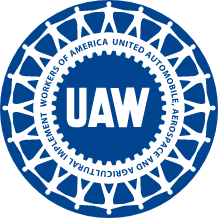YOUR GUIDE TO THE FAMILIES FIRST CORONAVIRUS RESPONSE ACT
Last week, the Families First Coronavirus Response Act was passed by Congress and signed into law by President Trump. The bill will provide support for workers during the Coronavirus pandemic as well as providing additional funding for social safety net programs. Read some of the highlights of the bill below:
What does the Families First Coronavirus Response Act do?
- Free COVID-19 Testing: The bill ensures patients have access to cost-free COVID-19 testing.
- Paid Sick Leave: Employers with over 50 employees and under 500 employees are required to grant two weeks (80 hours) of paid sick leave for workers dealing with the coronavirus.
- Requires employers to grant two weeks (80 hours) paid sick leave immediately
- Covers COVID-19 related issues, such as workers experiencing symptoms, seeking medical diagnosis, quarantine, caring for quarantined family members, or caring for children due to school or daycare closures due to coronavirus.
- Exempts large employers with over 500 workers
- Exempts small employers with under 50 workers
- Includes part-time workers, who receive pay based on average weekly hours worked.
- Paid Medical Leave for Childcare: The bill expands the Family and Medical Leave Act (FMLA) by providing 10 weeks of paid leave at two-thirds pay to workers caring for a child. Like the paid sick leave, this only applies to employers with over 50 and under 500 employees.
- Following the first two weeks (10 days) of unpaid leave, employers must provide paid leave at two-thirds an employee’s regular pay, up to 10 weeks.
- Exempts large employers with over 500 workers
- Exempts small employers with under 50 workers
- Part-time employees eligible, based on average weekly hours
- Only applies to workers unable to work because they must care for a child under 18 years of age due to COVID-19 related school or childcare closures.
- Expands Food Assistance Programs: The bill provides funding for food assistance programs, including WIC, local food banks, and senior nutrition programs, and waives regulations making it easier for schools to provide student lunches.
- Unemployment Support to States: The bill provides $1 billion in grants to states for unemployment programs.

